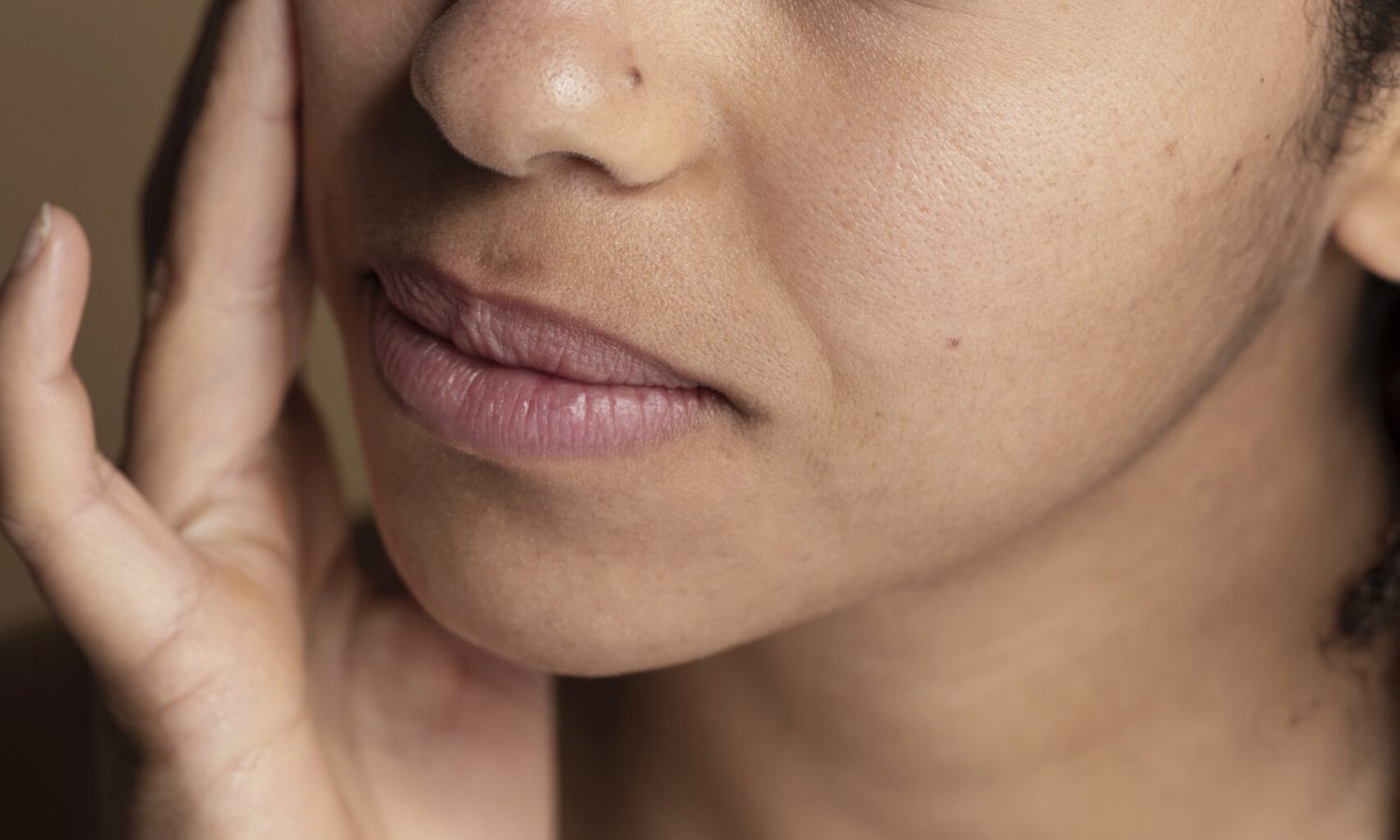
Did you know that even minor body dehydration can damage your mood, memory, and cognitive abilities? In fact, reducing even 1-2% of your body’s water content might result in severe cognitive decline. Despite this, many people fail to detect the mild indicators of body dehydration. Understanding these symptoms is critical since dehydration can affect both your mental and physical health. In this essay, we’ll look at 10 startling indications of body dehydration that you should be aware of.
Recognizing the indications of dehydration is critical for health because it can severely affect both physical and mental functions. Without regular hydration, the body struggles to regulate temperature, blood pressure, and cell function. Chronic dehydration can cause serious problems, including kidney stones, urinary tract infections, and even kidney failure. Furthermore, dehydration impairs cognitive functions, causing difficulty with focus, memory, and mood stability. Individuals can avoid these negative health impacts, preserve overall well-being, and guarantee that their bodies work optimally if they recognize and manage the early signs of body dehydration.
Table of Contents
ToggleCommon Reasons People Become Dehydrated
- Inadequate Water Intake
- Excessive Sweating
- Illness
- Increased Urination
- Not Drinking Enough During Exercise
- Alcohol and Caffeine Consumption
- Hot and Dry Climates
- Dietary Factors
- Aging
10. Stress
10 Surprising Signs of Body Dehydration
1.Persistent Bad Breath

Body Dehydration can induce a lack of saliva production, which can lead to poor breath because saliva is essential for oral hygiene. Saliva helps to clean the mouth by removing food particles and bacteria. When the body is dehydrated, it produces less saliva, creating a dry environment in the mouth where odor-causing bacteria can thrive. These bacteria degrade food particles and produce foul-smelling chemicals, causing bad breath. Furthermore, without enough saliva, dead cells and debris build up on the tongue, gums, and cheeks, contributing to unpleasant odors. Thus, staying hydrated is critical for maintaining adequate saliva production and avoiding foul breath.
2. Dry, Flaky Skin

When the body is dehydrated, the skin’s reaction can be rather severe. Dehydration causes a loss in skin suppleness, making it dry, flaky, and prone to wrinkles. This occurs because water is required to maintain the skin’s barrier function, which regulates moisture levels and protects against external irritants. Furthermore, body dehydration can impair the skin’s capacity to produce natural oils, causing additional dryness and irritation. Chronic dehydration can lead to premature aging symptoms including fine wrinkles and sagging. As a result, staying hydrated is essential for skin health, keeping it smooth, resilient, and vivid.
3. Muscle Cramps and Spasms

Dehydration can result in electrolyte imbalance, which can cause a variety of muscle problems. Electrolytes such as sodium, potassium, calcium, and magnesium play important roles in muscle function, including contraction and relaxation. When the body loses water from sweating or inadequate intake, electrolytes concentrate, disturbing their balance. This imbalance can lead to muscle cramps, spasms, and weakening. Proper hydration ensures that electrolytes are properly dissolved and balanced, which promotes normal muscular function and lowers the likelihood of these problems. As a result, staying hydrated is critical not only for fluid balance but also for maintaining adequate electrolyte levels, which promote muscular health.
4. Food Cravings, Especially for Sweets

The hypothalamus, the portion of the brain responsible for regulating hunger and thirst, sends similar signals for both sensations, so the body might sometimes misinterpret them. When the body is dehydrated, it may interpret this signal as a need for food, resulting in cravings and a need to eat. This misconception gets worse by the fact that mild body dehydration can create weariness and irritation, which may be misinterpreted as hungry. As a result, staying hydrated is critical not just for maintaining physical functioning but also for correctly interpreting the body’s signals of thirst and hunger.
5.Headaches and Lightheadedness

Dehydration has a severe impact on blood flow and brain function. When the body lacks enough water, blood volume declines, lowering blood pressure and reducing the amount of oxygen and nutrients given to the brain. This decrease in blood flow can have a variety of cognitive impacts, such as trouble concentrating, memory problems, and increased sensations of exhaustion. Furthermore, body dehydration causes the brain tissue to shrink somewhat due to fluid loss, which activates pain receptors and causes headaches or migraines. Proper hydration is essential for maintaining optimal blood flow and supporting brain function, which ensures clarity of mind and overall cognitive health.
6. Dark-Colored Urine
Urine color can be a good measure of hydration. When the body is properly hydrated, urine is pale yellow or straw-colored. This suggests that the kidneys properly excrete extra water while conserving critical nutrients. However, when the body is dehydrated, urine becomes more concentrated and darker in color, often ranging from amber to deep yellow or orange. This deeper color is caused by the kidneys conserving water to maintain biological functions, resulting in higher concentrations of waste products and a less volume of urine. Monitoring urine color can thus give a quick and straightforward tool to assess hydration status and make necessary adjustments in fluid consumption to maintain optimal hydration levels.
7. Dry or Sticky Mouth
Saliva is essential for maintaining oral health and digestion, hence its loss during dehydration is considerable. Adequate saliva production helps to cleanse the mouth, neutralize bacteria-produced acids, and facilitates chewing and swallowing food. When dehydrated, the body conserves water by limiting saliva production, resulting in a dry mouth. This can raise the risk of dental problems like tooth decay and gum disease, as well as affect digestion and create discomfort when eating. As a result, keeping sufficient hydration is critical not just for overall health, but also for maintaining oral hygiene and digestive processes aided by saliva.
8.Decreased Sweat Production

Dehydration severely reduces the body’s ability to regulate temperature through sweating. When dehydrated, the body conserves water by producing less sweat. Sweating is an important mechanism for cooling the body during physical exertion or in hot surroundings. When water levels are low, sweat glands receive less blood flow and create less perspiration, reducing the body’s capacity to cool itself effectively. This can raise the risk of overheating, heat exhaustion, and possibly heat stroke, especially during strenuous exercise or in hot weather. Adequate hydration is vital for supporting the body’s natural cooling systems and avoiding these major health hazards.
9.Rapid Heartbeat and Breathing
Dehydration has a substantial impact on cardiovascular function by decreasing blood volume and increasing blood viscosity. When the body loses fluids from sweating, urination, or inadequate intake, the volume of blood that circulates through the veins and arteries decreases. This decrease in blood volume causes a drop in blood pressure, requiring the heart to work harder to pump blood to the organs and tissues. Furthermore, dehydration can cause the blood to thicken and concentrate, reducing its capacity to flow easily through blood vessels. These changes can cause an increase in heart rate as the heart works to maintain proper blood flow and distribute oxygen and nutrients throughout the body.
10.Fatigue and Sleepiness

Dehydration can produce low energy levels and fatigue because water is required for numerous biological functions, including energy production. Cells cannot operate properly when the body is dehydrated. This has an impact on the transportation of nutrients and oxygen throughout the body, both of which are necessary for energy production. Body dehydration also reduces blood volume, which forces the heart to work harder to pump blood and provide oxygen and nutrients to the muscles and organs. As a result, individuals may experience weariness, weakness, and a reduced capacity to accomplish physical and mental tasks, resulting in overall exhaustion and low energy levels.
How to Properly Hydrate
Daily Water Intake Recommendations – A person’s water requirements vary depending on age, gender, weight, activity level, and climate. As a general rule, health officials often recommend drinking 8 glasses each day, which amounts to around 2 liters or half a gallon. This should be set upwards in hot weather or at periods.
Hydrating Foods – Maintaining proper hydration is more than just drinking water; eating meals high in water content can also help tremendously. Cucumbers, which are 96% water, and lettuce, which is 95% water, are two of the most hydrating foods. Watermelon and strawberries are also wonderful alternatives, as watermelon contains approximately 92% water and strawberries contain approximately 91% water. Other hydrating foods include cantaloupe, oranges, celery, and tomatoes, which are high in water and include critical vitamins, minerals, and antioxidants that promote general health and hydration.
Electrolyte Balance – Electrolytes are essential for supporting several biological activities, including hydration, muscle contraction, and nerve impulses. Minerals such as sodium, potassium, calcium, and magnesium dissolve in the body’s fluids, forming positive and negative charges. Maintaining electrolyte balance is critical for adequate hydration because it helps control fluid levels and prevents body dehydration. To maintain electrolyte balance, eat a well-balanced diet that includes fruits, vegetables, and whole grains, all of which contain electrolytes. Furthermore, during periods of extreme physical activity or high heat, replenishing electrolytes with sports drinks or electrolyte supplements can assist ensure correct hydration and prevent imbalances that can cause muscle cramps, exhaustion, and other health problems.
Tips to Avoid Dehydration
To avoid body dehydration, drink plenty of fluids throughout the day, particularly water. Start your day with a glass of water and keep a water bottle on hand at all times to sip from. Avoid sugary and caffeinated beverages, as these can lead to body dehydration. If you are exercising or exposed to hot temperatures, increase your hydration intake. Consume foods high in water, such as fruits and vegetables, and if you’re sweating heavily, consider adding electrolyte-rich beverages like sports drinks. Keep track of the color of your urine; a pale yellow tint suggests that you are well-hydrated. Finally, listen to your body; thirst is a sign that you need to drink more water.
Conclusion
In the blog post titled “10 Surprising Signs of Body Dehydration You Need to Know,” readers are told about a variety of unexpected signs of dehydration.These include constant bad breath due to decreased saliva production, dry, flaky skin as a result of decreased skin elasticity, muscle cramps and spasms caused by imbalances in electrolytes, hunger pangs, especially for sweets, which may indicate a confused thirst response, migraines and feeling dizzy due to reduced blood flow and brain function, dark-colored urine as an obvious indication of inadequate hydration, dry or sticky mouth due to reduced saliva, and decreased sweat production. Recognizing these symptoms is critical to sustaining good health and well-being.
We would love to hear from you! Have you had any of these signs before? What are your suggestions for staying hydrated? Please share your ideas and experiences in the comments section so that we may continue to learn from one other and promote improved hydration habits together. Let us keep our bodies happy and hydrated!
FAQS
Dehydration occurs when the body loses more fluids than it takes in, resulting in an imbalance of electrolytes.
Dehydration can be caused by a lack of fluid consumption, excessive sweating (for example, from exercise or hot weather), vomiting, diarrhea, or fever.
Dehydration symptoms include thirst, dark-colored urine, dry mouth, dry skin, weariness, dizziness, headache, muscular cramps, and reduced urine output.
The overall advice is to drink 8 glasses (8 ounces each) of water each day, however individual requirements may differ depending on age, gender, activity level, and climate.
Yes, thirst is not usually an accurate predictor of dehydration, particularly in older persons. Other indications of dehydration include dark urine, a dry mouth, and weariness.